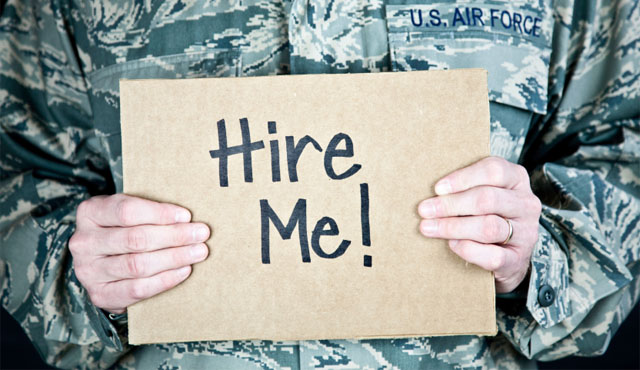Supporting Veterans in Becoming Gainfully Employed

The Post-9/11 GI Bill has paid for nearly 1 million veterans of the Iraq and Afghanistan wars to go to school at a cost of about $30 billion since 2009. With an influx of over one million more veterans projected to enter higher education in the next several years, institutions should be prepared to serve veteran students. Military veterans represent a unique type of non-traditional student who must overcome distinctive challenges to reintegrate into the civilian workforce yet many employees never have special training to serve this population.
The Iraq and Afghanistan Veterans of America (IAVA) Executive Director and Founder, Paul Rieckhoff, has stated "The GI Bill is a promise we made to the veterans of World War II: that those who defend our country should be able to take advantage of America's opportunity.” The promise of the Post-9/11 GI Bill, however, isn’t fulfilled when a veteran enrolls and completes a degree program; it is fulfilled when they become gainfully employed.
CS108 – Supporting Veterans in Becoming Gainfully Employed is a new online course that helps career services practitioners understand the unique obstacles veterans face in the reintegration process, how to help them translate their military experience into civilian language and provides strategies & tools that can support veterans in becoming gainfully employed.
As you approach a job interview, you are going to be given the chance in your interview to ask questions of the employer. What are you going to ask? What do you really want to know about your target organization that can't be found on their website? And how can your question provide your potential employer with the idea that you have done your homework and are legitimately asking a question to gain more insight into the organization?
First, homework, homework, homework. You have to approach "getting a job" like it is your job. When you are offered that precious interview, make sure that you know all you can know about the company before you enter their front door. Second, don't ask questions that you can find on the internet. That indicates that you didn't care enough about the job to read about the company. And third, make sure you have at least one question prepared. There is no way that your interviewer will be able to tell you everything that you want to know about the company. One key attribute that prior military bring to corporate America is their leadership experience - ask about the company's leadership training. Ask how the company prepares their front line leaders to assume greater levels of responsibility and ask how you would fit in their leadership development based on the position up for hire.
And, again, do your homework before you go for the interview. Good luck!
With 1.2 million service members leaving active duty over the next 5 years, it is imperative that they set aside appropriate time to execute a successful transition. There is going to be a lot of competition for civilian jobs and the leadership skill set that these transitioning service members bring to Corporate America are unmatched compared to previous decades. But Leadership experience, although extremely valuable, will not provide guaranteed employment. In years past, service members would voluntarily attend TAP in their last few months of service, thinking that TAP would be enough to set out on a civilian career. But transitioning service members would not set aside enough time to prepare their educational profile to meet today's job market. They would leave TAP with a few directions to go in search of employment, but they would not have a comprehensive plan on how to work their way to civilian employment.
I mirrored that logic in my own transition thinking that I was sufficiently prepared to meet the outside world. I had what I thought was a solid educational background, I had commanded various Army units at the 0-6 level, but I was unskilled at navigating corporate America and TAP did not prepare me for that eventuality.
If I had to do it all over again, I would set up a 2 year timeline that would ensure that I was ready for any opportunity. If the market called for Project Management certificates, two years would be sufficient to fill that gap in my resume. If SAP was the desired skill, I would research my options and use my tuition assistance to qualify in that discipline. Plus, two years gives a service member the requisite time to research various careers to determine the entrance requirements to pursue employment. There are various tools that can be used to match military skill with civilian skills and other tools that can reveal the top civilian disciplines that are hiring in specific zip codes. Make great use of these as a starting point.
Service members are taught to follow the values Selfless Service and Service Before Self, but during a career transition service members have to learn to put their preparation towards the top of their "to do" list. Just like in the military, service members are their best career manager in Corporate America and the faster that mindset can be adopted will go miles to securing post military employment.
What do you think?